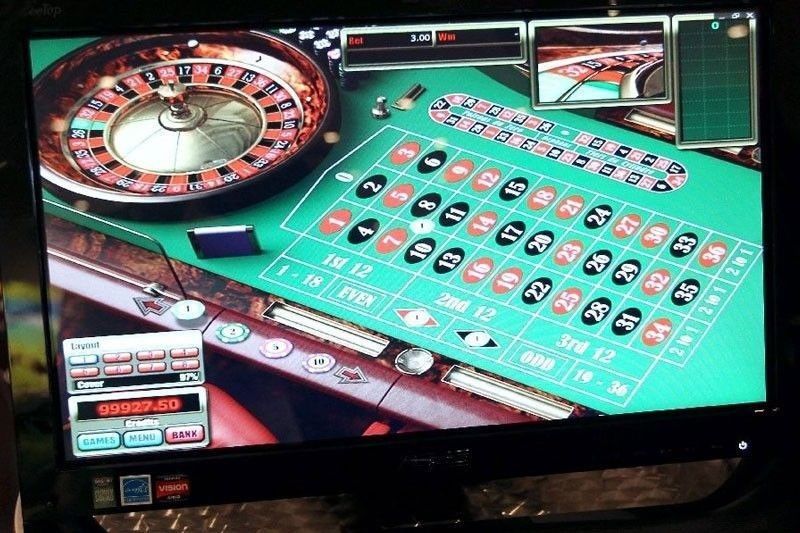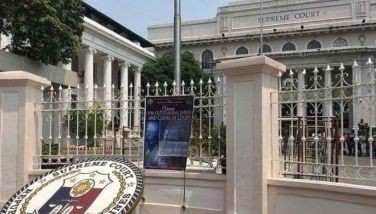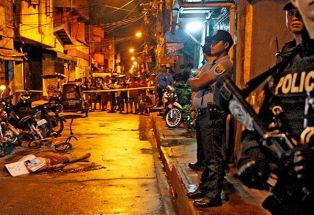IATF allows partial resumption of POGOs

Full tax payment required
MANILA, Philippines — With the relaxing of quarantine rules in some areas, Philippine offshore gaming operators or POGOs may resume partial operations – but with certain restrictions, Malacañang said yesterday.
Presidential spokesman Harry Roque said over People’s Television Network’s “Laging Handa” program that Chinese-dominated POGOs are classified as business process outsourcing (BPO) firms and thus are allowed to operate under enhanced community quarantine (ECQ).
“All BPOs are allowed to operate on limited capacities, so POGOs will be allowed to maintain a skeletal workforce of 30 percent in areas under ECQ,” Roque said.
He explained that online gambling services cater to markets outside the Philippines.
Controversy hounded the operation of POGOs in the country, as many of their Chinese employees were believed to have illegally entered the country. Many of them were also found to be involved in crimes in the Philippines.
Roque said proceeds of
government collection from POGO operations like taxes will go to COVID-19 expenditures, noting the challenges the government is facing in addressing the needs of the impoverished sectors amid the coronavirus disease crisis.
President Duterte has extended the ECQ in Metro Manila and in provinces in Region 4-A and Region 3 until May 15. Several other provinces have been placed under a relaxed quarantine or general community quarantine (GCQ).
POGO operators allowed to resume operations will need to abide by rules such as providing on-site accommodations and shuttle services for their workers. To avoid overcrowding that can heighten the risk of workers being infected with COVID-19, Roque said the POGOs can only operate on 30 percent capacity at a time.
Furthermore, he said POGOs should comply with requirements from the Bureau of Internal Revenue (BIR) and the Philippine Amusement and Gaming Corp (Pagcor), which authorizes and regulates the operation of gaming firms.
Roque said returning POGO workers would be subjected to COVID-19 tests before they are allowed to reassume their jobs.
The employees can undergo the testing using real time polymerase chain reaction (RT-PCR) or rapid anti-body testing kits.
POGO operations stopped last March 15 when President Duterte declared a state of emergency and ordered a lockdown of Luzon to combat COVID-19.
Pagcor chair and chief executive officer Andrea Domingo said POGOs are allowed to reopen to help the national government raise needed funds to help the government ease the impact of the pandemic.
Prior to resumption of operations, POGOs and their service providers, she said, would be required to strictly follow rules, especially by updating and paying all their tax liabilities with the BIR, as well as their payment of any regulatory fees, license fees, performance bond or penalties due to Pagcor.
They should also remit regulatory fees for the month of April.
Domingo added the regulator would impose safety protocols on POGOs to help ensure that their employees are protected from COVID-19 infections and at the same time prevent further spread of the deadly virus.
Barred if positive
Employees who test positive for COVID-19, as well as those suspected of having the disease, would not be allowed to work. Also barred from working in POGOs are those belonging to vulnerable groups, including the sick, immune compromised, seniors, pregnant women and those with co-morbidities.
“Even with the partial resumption of POGO operations, we will put premium on the safety of their employees and the gaming industry as a whole. While we recognize their huge contributions to nation-building and their great viability as a funding source in these difficult times, we still have to practice extra precaution in striking a balance between health and economic benefits,” Domingo said.
Pagcor requires all POGO licensees to remit two percent of their gross gaming revenues as regulatory fees. Revenue from POGOs ballooned to P5.73 billion last year from only P73.72 million in 2016.
In the first quarter of the year, POGOs contributed P1.8 billion in regulatory fees alone, bringing to P20.83 billion the collections of Pagcor since 2016.
With its decision to resume POGO operations, the agency also wants to make sure the jobs of 31,556 Filipinos directly hired by POGOs are preserved.
Pagcor said earlier it was losing P5 billion to P6 billion a month after it ordered the temporary closure of all land-based casinos, e-games, bingo, poker, slot machine clubs and sports betting facilities last March 15 and extended the suspension order to POGOs and service providers three days later.
The Accredited Service Providers Association of Pagcor (ASPAP), for its part, said its members would follow the strict conditions issued by Malacañang and the Inter-Agency Task Force on Emerging Infectious Diseases (IATF).
These include deep cleaning and disinfection of facilities, testing of Filipino and foreign workers for COVID-19 prior to deployment, payment of workers’ salaries and taxes to BIR, remittance of the P350-million minimum guaranteed fee to Pagcor, proper social distancing and other measures.
The group also welcomed the classification of POGOs as BPO companies.
“To stress a point – POGOs are offshore gaming operators, while POGO service providers are typical Philippine-based BPO companies that are purely paid service fees,” ASPAP said.
Monitoring Parañaque POGOs
Meanwhile, the Parañaque City government has asked its policemen to monitor movements of Chinese POGO workers.
In a statement Thursday, Parañaque Mayor Edwin Olivarez said he has directed Melanie Malaya, the Business Permit and Licensing Office chief of the city, to inspect Chinese-owned business establishments in two villages.
“All those who are hard-headed and who are violating the ordinances of the city, may it be Filipinos or foreigners, they would be caught and would be facing charges,” Olivarez said.
The order also came roughly a week after police arrested some 44 Chinese nationals and nine Filipinos in a raid of a POGO outlet at a barangay in the city.
Last Friday night, Parañaque police raided a house at Mayuga compound in Barangay Tambo after receiving a phone call from a concerned citizen that Chinese men with firearms could be seen outside their residence during curfew hours.
Upon verification, police saw the Chinese men who then ran inside the house, where authorities saw P1.335 million in different denominations, 255 Chinese yuan and 73 Chinese passports.
Various calibers of firearms were also seized, as well as 400 units of cellphones, 17 computers, 36 laptop computers, nine modems and assorted computer cables and wires. – Edu Punay, Iris Gonzales, Rainier Allan Ronda, Ralph Villanueva
- Latest
- Trending





























